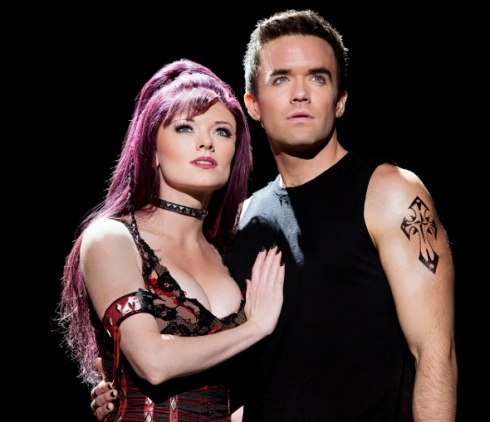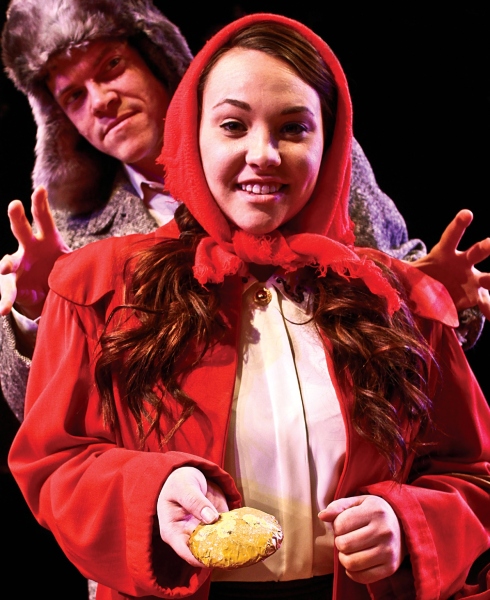By JOHN DeMERS
It’s pretty gutsy to write (or produce or perform) a play entirely without character interaction or dialogue, in which the three characters involved offer only monologues addressed to the audience. It’s probably also gutsy to write (or produce or perform) a play in which the only thing that happens onstage all night has happened already – and the audience is none too sure what that was.
Such are the challenges, frustrations, fascinations and eventual rewards of Faith Healer, written by veteran Irish playwright and screenwriter Brian Friel and currently on display thanks to Houston’s Stark Naked Theatre Company. The play is directed by former Alley stalwart John Tyson and stars himself along with the co-founding artistic directors of Stark Naked, Philip Lehl and Kim Tobin-Lehl. To say this is a labor of labor for all concerned is an understatement. Interestingly, for those who want more Irish-flavored talk after seeing Faith Healer, the company is about to launch The Good Thief by Conor McPherson, a one-man show also directed by Tyson and starring Santry Rush.
In Faith Healer, the three characters are Frank Hardy, an on-again, off-again charlatan who travels the British Isles conducting “healings” that sometimes actually work; Grace, Frank’s wife and apparently long-suffering partner in the not-very-successful venture; and Teddy, Frank’s colorful Cockney manager, who views these quasi-religious services as just another dog show, bird act or comedian to take on the road. As the monologues roll out (in no hurry, mind you), we hear from Frank then Grace before intermission, then from Teddy and Frank one final time. With halting authenticity, casual asides and bursts of deep emotion, the three talk about – something that happened. Indeed, we suspect over time that one or more of our narrators might, or might not, be already dead.
The mystery is delicious right along with the lush, cascading language. Not as lyrical as we think of some Irish writers of prose or poetry, Friel nonetheless gives us a lot of words: rich, evocative, usually ambiguous, often quite funny. Things darken as we spot certain moments recurring in the different characters’ stories, clearly important, life-or-death moments, even if some of the facts are different each time we hear about them. This is, in a sense, a detective story, with audience as detective arriving after the crime and interrogating witnesses to get a handle on things. In this play, as at a crime scene, this can prove to be no picnic.
Tyson retains for himself the role likely to delight most, Cockney-accented Teddy, swilling bottle after bottle of stout while intermingling tales of Frank and Grace on the road with hilarious detours into his career in smalltime entertainment. Friel was wise enough to place this entertaining monologue after the first two, when “comic relief” is certainly welcome. Tobin-Lehl gives her all to Grace, never rising from her chair, struggling with voice and especially hands to keep emotions under control, skirting the edge of some kind of breakdown that she may or may not have already had. Lehl opens and closes the show, giving voice to Frank’s own onrush of guilt, doubt and fear as the fate we slowly suspect awaits him in his Irish homeland inches nearer with each glance, each line, each word.
With its shadow-filled universe crafted by set designer Kevin Holden and lighting designer Clint Allen, Faith Healer isn’t an easy night of theater. It asks more questions than it answers. And like a detective rather than a detective novel, it has to settle for an evidence table of partial truths.
Photo by Gabriella Nissen: John Tyson as Teddy



